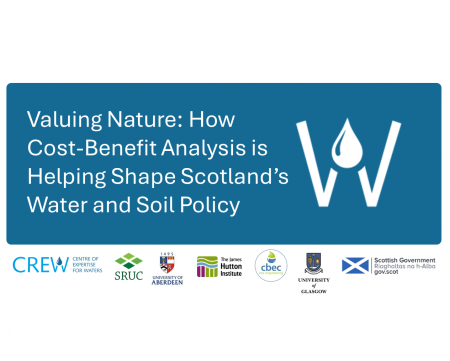News
Valuing Nature: How Cost-Benefit Analysis is Helping Shape Scotland’s Water and Soil Policy

Two projects commissioned by CREW have demonstrated the value of cost-benefit analysis in tackling environmental challenges, helping policymakers balance ecological protection with economic realities.
The first project, ‘Assessing the socio-economic impacts of soil degradation on Scotland’s water environment’ revealed that compacted soils alone cost Scottish farmers over £25 million per year in lost yields and increased fuel use. When additional impacts such as flooding, pollution, and biodiversity loss are considered, the national economic cost could exceed £70 million annually. These findings underline the importance of preventing soil degradation—not only for agricultural productivity but also for protecting water quality and reducing flood risks.
The second project, ‘Environmentally effective and cost-efficient sediment management at impoundments’, evaluated the cost-effectiveness of different catchment management approaches, such as tree planting along rivers and peatland restoration. Using survey responses from nearly 1,000 people, the analysis found that these nature-based interventions delivered clear economic and environmental benefits, reducing the frequency of costly sediment removal and improving river health.
These studies show how cost-benefit analysis can enhance evidence-based decision making. By quantifying both financial and ecological impacts, this approach helps ensure that environmental policies continue to deliver strong outcomes for people, landscapes, and climate resilience in Scotland.
For more information on the projects, including their cost-benefit analyses, please visit the publication pages linked above.
CREW would like to thank the research teams for both projects (The James Hutton Institute, SRUC, University of Aberdeen, University of Glasgow and CBEC eco-engineering) and the Project Steering Group (SEPA, NatureScot, Scottish Canals and Scottish Government) for their dedication and support to the project and in addressing this important issue.




